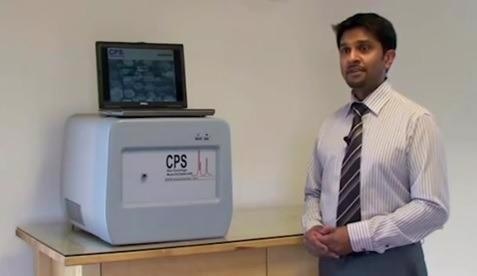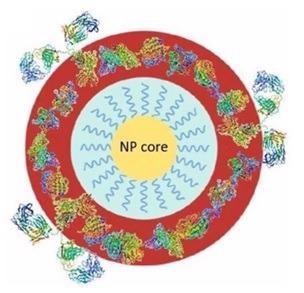Analytik Ltd report how a multidisciplinary collaborative research effort including researchers at University College Dublin, University of Salford and Royal College of Surgeons have used a DC24000 ultra high-resolution particle size analyser for accurate physicochemical characterisation of small-sized nanoparticles, particularly for the analysis of the particles in the presence of complex biological fluids.

Nanoparticles of 5 nm diameter or smaller are gaining attention in the field of nanomedicine in contrast to larger particles, these nanomaterials offer improved tissue penetration, a reduced accumulation in the liver and more efficient renal clearance which renders them particularly attractive for reducing the non-specific accumulation and off-target effects.
Despite these exciting potential applications, current limited use of small nanoparticles has been associated with challenges surrounding their physicochemical characterisation. In particular when characterising smaller nanoparticles after bioconjugation, commonly used techniques such are Dynamic Light Scattering (DLS) and Nanoparticle Tracking Analysis (NTA) struggle to analyse such challenging materials due to their detection limit and other issues. In addition, other techniques, such as Fluorescence Correlation Spectroscopy (FCS) or Agarose Gel Electrophoresis (AGE) require particular particle properties such as fluorescence and therefore are not broadly applicable to all nanoparticle types.

Employing proprietary Differential Centrifugal Sedimentation (DCS) technology the DC24000 analyser is an extremely powerful tool for high resolution particle characterisation, especially in the size range 0.002 micron (2nm) to 10 microns. With the unique ability to resolve very close multi-modal particle distributions, and to distinguish extremely small shifts and changes in particle size, DCS is gaining popularity as a valuable particle sizing technique for nanomedicine applications.
In a recently published paper entitled 'In depth characterisation of the biomolecular coronas of polymer coated inorganic nanoparticles with differential centrifugal sedimentation' the researchers at the University of Salford show how Differential Centrifugal Sedimentation can be utilised as a high-precision tool for the reliable characterisation of functional nanoparticles of different materials. They report upon developing a method to correlate the sedimentation shift with polymer and biomolecule adsorption on the nanoparticle surface, validating their developed core–shell model.
To learn more about Differential Centrifugal Sedimentation please visit https://analytik.co.uk/particle-size-characterisation-by-dcs/ or contact Analytik Ltd. on +44(0)1954 232 776 or email [email protected]. To read the University College Dublin article in full please visit https://www.nature.com/articles/s41598-021-84029-8.